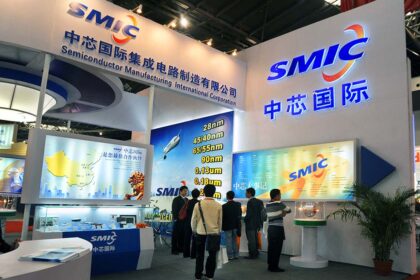Chinese chip powerhouse SMIC saw Q1 revenue fall to $1.46 billion as it continues to withstand chip shortages and US trade sanctions.
Semiconductor Manufacturing International Corporation (SMIC) has seen its revenue fall according to its latest quarterly figures. On Friday, the Chinese chipmaking giant posted revenue of $1.46 billion for Q1 2023 amid challenging macroeconomic parameters. In addition to being down 20.6% year-on-year (YoY), SMIC’s latest revenue haul represents the first income deficit in over three years. The last time the Shanghai-based semiconductor maker experienced a sales decline was in Q3 2019.
SMIC’s revenue fall also extended to its net profit, which plunged 48% YoY to $231.1 million. As mainland China’s largest contract chip maker, SMIC hopes to eventually catch up with regional rivals, especially Taiwan Semiconductor Manufacturing Company (TSMC). However, SMIC’s ambitions to boost China’s domestic semiconductor industry suffered a setback when the company incurred US sanctions in 2020. At the time, Washington placed SMIC on a trade blacklist called Entity List, effectively cutting the leading East Asian chipmaker off from essential production resources. As a result, SMIC has struggled to manufacture more advanced, cutting-edge semiconductors competitively.
Despite production trailing TSMC and Samsung, as well as constraints posed by US sanctions, SMIC posted record revenue throughout last year. In February, the company reported a full-year 2022 revenue of $7.2 billion, representing a 34% increase from last year. Furthermore, SMIC saw a gross margin of 38%, its second year of sales growth above 30%.
SMIC Exec Chalks Up Revenue Fall to Global Chip Shortage Also Affecting Other Semiconductor Players
SMIC executives attributed the latest income drop to waning demand due to the sustained chip shortage. On an earnings call, the company’s co-chief executive Zhao Haijun admitted that prospects for recovery in the year’s second half remained unclear. SMIC’s declining earnings also came amid business and operational outlook revisions by other leading chip manufacturers such as TSMC and Samsung.
The impact of the global chip glut saw TSMC recently update its 2023 revenue forecast from slight growth to a lower single-digit decline. Meanwhile, US semiconductor powerhouse Intel (NASDAQ: INTC) anticipates a loss of 4 cents a share in Q2 2023. Intel’s grim outlook came after the Santa Clara-based company reported its most significant quarterly deficit last month. However, Intel CEO Pat Gelsinger remained optimistic at the time by focusing on bright spots in the chipmaker’s agenda. Emphasizing that Intel’s bleak first-quarter financial outing alluded to the company’s steady transformational progress, Gelsinger explained:
“While we remain cautious on the macroeconomic outlook, we are focused on what we can control as we deliver on IDM 2.0: driving consistent execution across process and product roadmaps and advancing our foundry business to best position us to capitalize on the $1 trillion market opportunity ahead.”
Intel’s chief financial officer David Zinsner also assessed its performance, explaining that it surpassed top and bottom line expectations. Furthermore, at the time, the CFO added that Intel remained committed to exercising discipline in expense management. Zinsner said the tech giant would continue driving efficiencies and cost savings.
Tolu is a cryptocurrency and blockchain enthusiast based in Lagos. He likes to demystify crypto stories to the bare basics so that anyone anywhere can understand without too much background knowledge.
When he’s not neck-deep in crypto stories, Tolu enjoys music, loves to sing and is an avid movie lover.




